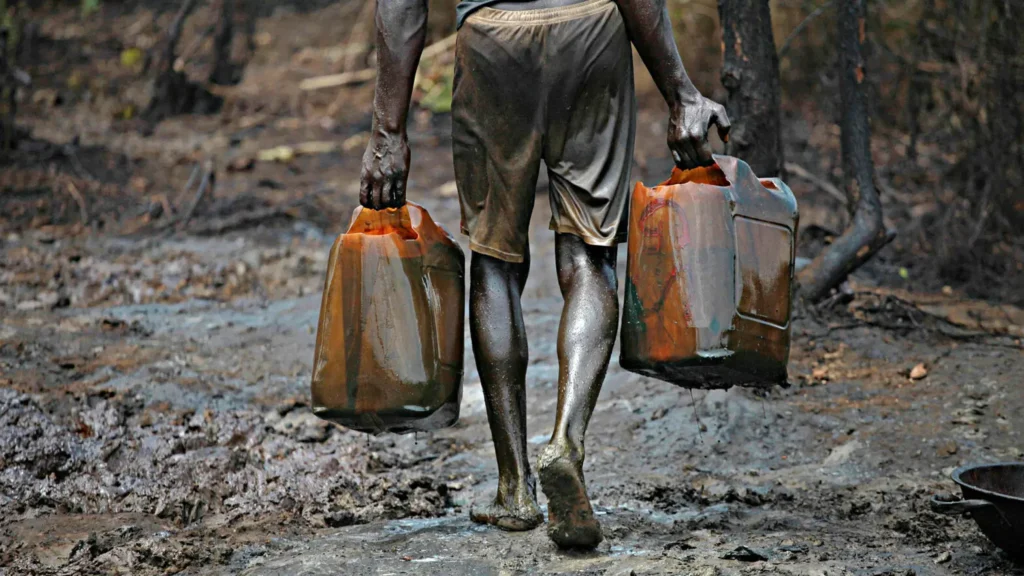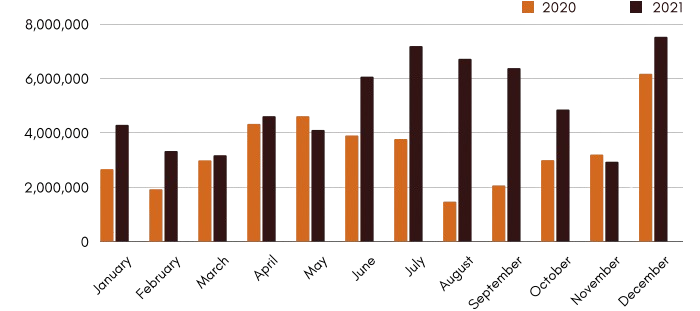April, 2022
Nigeria’s oil sector, one of the most critical pillars of its economy, continues to struggle with significant production losses. As Africa’s largest oil producer, Nigeria’s economy is heavily reliant on its hydrocarbons industry, with oil and gas accounting for 65% of government revenue and 88% of foreign exchange earnings. However, production losses continue to hinder the sector’s full potential, leading to revenue losses, budgetary deficits, and stifling economic growth.

Key issues include operational shutdowns, labor strikes, crude theft, and infrastructure vandalism, which collectively curtail production. These issues have prevented the country from reaching its full capacity, as the average production capacity is currently at 1.386 Mbpd, a shortfall of 15.18%.

Fig 1: Production losses by month

*Year of interest: January 2020- December 2021
Geographically, offshore fields experience production losses exclusively due to operational issues, such as equipment failures and maintenance requirements. While onshore fields face additional challenges, including crude theft and industrial actions from host communities, compounding the operational disruptions. Shell’s Forcados terminal recorded the highest number of shut-in events (80 out of 447), leading to the largest cumulative production loss at 27.47 million barrels. NNPC reports production loss as a function of the receiving terminal, but further analysis indicates that the underlying issues often stem from the fields and pipelines that feed these terminals rather than the terminals themselves.
“The problems are rarely in the terminals though but in the fields and pipelines connected to them.”
The exact volumes of crude oil stolen through vandalism are difficult to quantify, as the required data is not readily available to the public. However, vandalism induces production losses in three primary ways:
(1) direct theft of crude oil by vandals
(2) oil spills caused during sabotage, and
(3) production shut-ins necessary to conduct repairs on vandalized infrastructure.
A conservative estimate places the production loss due to these sabotage-related factors at approximately 32,832 barrels per day across 637 recorded incidents. According to the National Oil Spill Detection and Response Agency (NOSDRA), 48,298 barrels of oil (66.07 barrels per day on average) were spilled, indicating that significant volumes of lost production were either stolen or halted as a preventive measure.
Addressing the root causes of Nigeria’s oil and gas sector challenges is essential for lasting solutions. To address operational challenges, operators need to invest more in preventive and predictive maintenance rather than corrective maintenance. While for the issue of vandalism, inclusive committees with representatives from all parties should be established. This would ensure a balanced approach where diverse interests are acknowledged, and grievances can be promptly discussed and resolved.
Click here to read full report
Leave a Reply